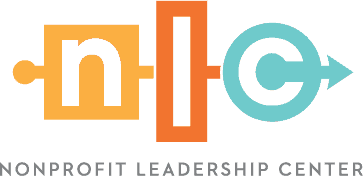It’s no secret that COVID-19 has profoundly impacted nonprofits and communities, But what is the outlook for organizations today as they’ve continued to navigate the effects of the pandemic?
The Nonprofit Leadership Center began surveying nonprofit CEOs and executive directors in March 2020 to understand the impact of COVID-19 on Tampa Bay nonprofits and their constituents. Six months after the outbreak, NLC invited nonprofit executive leaders during September and October to share how the ongoing issues of 2020 have affected their leaders and organizations. Here’s what they had to say.
Despite a challenging operating and fundraising environment, the outlook for many nonprofit leaders is still positive.
- Nonprofit leaders said the top challenge six months into the COVID-19 pandemic is fundraising. Additionally, leaders cited innovating programs/events/business models and revising/recalibrating organizational business strategy as challenges.
- The top three concerns for generating organizational revenue are: 1) cancelled fundraising events (64.10%), 2) loss of funders or corporate partners (45.15%) and 3) challenges meeting funder requirements (38.46%) or grants/contracts with government agencies at risk (30.77%).
- Despite significant fundraising concerns, nearly half (48.72%) of leaders who responded anticipate that their nonprofit will meet or exceed their total revenue goal for 2020.
- Likewise, more than half of respondents said they will either be able to keep their current staffing model in place or will require additional services from agencies or partners six months from now. Only 23% of respondents said they’ll need to lay off or furlough staff.
- The majority of respondents are currently open and operating, with some staff working in person and some working virtually. Nearly two-thirds of leaders plan to offer options for select employees to work in-person OR virtually. 20.5% will require all staff to work in-person while 5% plan to shift to a virtual model for all operations.
- Nonprofits vary when it comes to how their services will be affected during the next six months. 61.54% said they will need to add additional programs or services to meet existing/new needs, while 25.65% will have to reduce services and 12.82% will have to eliminate some programs and/or services entirely.
2020 has required nonprofit leaders to grow and stretch in many ways. As a result, the needs of leaders and their staff are growing, too.
- The past six months have required nonprofit leaders to shift and adapt operations and services, with the most prevalent being pivoting to virtual service delivery. Additionally, leaders cited making more concerted efforts to connect personally with donors, forge strategic collaborations and refocus on enhancing operations and organizational strategies.
- To personally be successful, nonprofit leaders say they most need the following:
- Prioritize self-care: "A chance to breathe and think. Being in response mode long-term is draining."
- Financial stability "More secure financial resources to meet payroll and continue business operations."
- Additional skills/training "Better understanding of how to take community engagement activities to a virtual environment."
- Board and funder support "A board that is willing to see all I'm doing and accomplishing." "Grace and kindness from funders."
- Respondents said their staff need more human connection, clarity and self-care. Additionally, flexibility and enhanced technology are necessary to ensure a successful virtual workplace
- More connection: "Time together, improved and more robust technology."
- More clarity and less uncertainty: "Clear goals that help to prioritize efforts for long-term instead of continuous pivoting."
- Emotional support/self-care: "Psychological support/therapy to deal with stress on the job and at home." | "Vacation. Seriously. We are all taking some time off. The last six months have been exhausting."
- Better technology: "Tools that assist in remote work for planning and accountability."
- Flexibility: "Staff is asking for support with flexible work hours so they can be available to help e-learning children."
3. While nonprofit leaders aspire to have diverse and inclusive organizations, most admit they have more work to do to make this a reality.
-
- Only 18.42% of respondents say their board of directors reflects strong diversity across race, gender, experiences, expertise and other related factors. 55% say they have some diversity but have more work to do, while 26% say they do not have a diverse board.
- Leaders say the most significant barrier to building a diverse board is identifying and recruiting people of color who are passionate about the mission.
- Nonprofit leaders say the most significant barriers to moving diversity, equity and inclusion efforts forward in their organization are: 1) they don’t know where to start and 2) available time/resources to implement effectively.
- To be a more diverse, equitable and inclusive organization, respondents said they need more training resources and support.
4. To succeed in our ever-evolving philanthropic landscape and world, respondents believe adaptability is the most important trait nonprofit leaders need to succeed.
-
- 40.5% of nonprofit leaders say adaptability is the most important trait they need to succeed, followed by creativity (16.22%) and then resilience (10.8%).
- On a scale of 1 to 10, with 1 being least courageous and 10 being most courageous, nonprofit leaders rank themselves an average of 7.5 on being a courageous leader.
Survey Methodology
This survey was fielded between September 21 and October 4, 2020, and explored questions in three areas: 1) current impact of COVID-19 pandemic on operations; 2) diversity, equity and inclusion; and 3) innovation and leadership. There were 39 total responses from nonprofit CEOs or executive directors, primarily who live in Hillsborough (52.78%) or Pinellas (44.44%) counties, with one respondent from Pasco County and one from Tennessee. Nearly half of respondents represent human service organizations (45.95%), followed by education and health care.
WATCH NEXT: 2020 State of the Nonprofit Sector Report from NLC CEO Emily H. Benham

